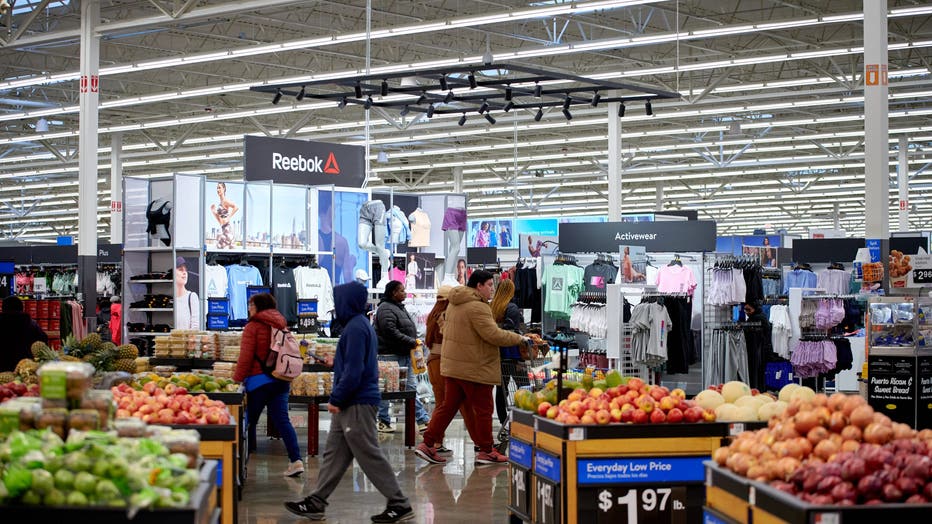Inflation is down and you deserve some of the credit, economists say
Consumers are fighting back against high prices, no longer accepting them and beginning to be more choosy about where their dollars are spent.
And this refusal to keep paying higher prices may be dealing a final blow to the country’s inflation spike.
"While inflation is down, prices are still high, and I think consumers have gotten to the point where they’re just not accepting it," Tom Barkin, president of the Federal Reserve Bank of Richmond, said last week at a conference of business economists. "And that’s what you want: The solution to high prices is high prices."
RELATED: Federal Reserve sees progress with inflation, hinting that a rate cut is near
Still spending but choosing

FILE - The produce section at a Walmart store in Secaucus, New Jersey, US, on Tuesday, March 5, 2024. Photographer: Gabby Jones/Bloomberg via Getty Images
One example of consumer pushback can be seen at the grocery store.
Buyers are shifting away from name brands to store-brand items, switching to discount stores or simply buying fewer items like snacks or gourmet foods.
Some of America's largest companies, from Amazon to Disney to Yum Brands, also say their customers are increasingly seeking cheaper alternative products and services, searching for bargains or just avoiding items they deem too expensive.
Consumer spending makes up more than two-thirds of economic activity.
Most economists say consumers are still spending enough to sustain the economy consistently, but a key question now is whether shoppers will pull back so much as to put the economy at risk.
Slowed price increases
The reluctance of consumers to keep paying more has forced companies to slow their price increases — or even to cut them. The result is a cooling of inflation pressures.
On Monday, the Federal Reserve Bank of New York reported that Americans' expectations of how much they'll spend in the next 12 months has declined — and so has their outlook for inflation. Consumers expect their spending to grow 4.9% in the coming year, according to a survey by the New York Fed. That is the lowest such reading since April 2021, when inflation was beginning to surge.
And they expect inflation to average just 2.3% over the next three years, the survey found, the lowest such figure since the survey began in 2013. Consumer expectations for inflation can be self-fulfilling: When households expect low inflation, they tend to delay some purchases in the expectation that prices won't rise much in the near future — and might even decline in some cases. This trend can keep price pressures down.
US economy latest
This week, the government will provide updates on both inflation and the health of the American consumer.
On Wednesday, it will release the consumer price index for July. It's expected to show that prices — excluding volatile food and energy costs — rose just 3.2% from a year earlier. That would be down from 3.3% in June and would be the lowest such year-over-year inflation figure since April 2021.
And on Thursday, the government will report last month's retail sales, which are expected to have climbed a decent 0.3% from June. Such a gain would suggest that while Americans have become vigilant about their money, they are still willing to spend.

